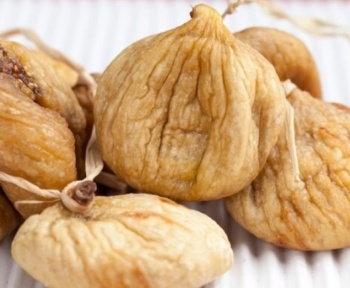Introduction
In recent years, more people have discovered the digestive benefits of dried figs, a natural, nutrient-packed fruit valued for centuries. Not only are dried figs delicious and versatile, but they also have remarkable health benefits, especially in promoting digestive health. Whether dealing with constipation, bloating, or just looking to enhance your gut health, dried figs can be an excellent addition to your diet. In this blog, we will explore how dried figs support a healthy gut, the science behind their digestive benefits, and practical ways to incorporate them into your daily meals.
What Are Dried Figs?
Before diving into their digestive benefits, it’s important to understand what dried figs are. Dried figs are fresh figs dehydrated to preserve their nutrients, flavor, and texture. The drying process intensifies the fruit’s natural sweetness and nutrient density, making it a convenient, long-lasting snack.

Nutritional Value of Dried Figs
Dried figs are packed with flavor and provide a wealth of essential nutrients that contribute to overall health, especially digestive health. Below is a table that compares the nutritional content of dried figs with other common dried fruits.
How Dried Figs Aid Digestion
One of the primary reasons dried figs are so beneficial for gut health is their high fiber content. Fiber is essential for digestion, as it helps to regulate bowel movements and maintain a healthy gut microbiome.
The Role of Fiber in Digestion
Dried figs are an excellent source of both soluble and insoluble fiber, which work together to promote smooth digestion. Soluble fiber helps to soften stool and regulate blood sugar levels. In contrast, insoluble fiber adds bulk to stool and helps prevent constipation.
By incorporating dried figs into your diet, you can help ensure your digestive system functions properly, minimizing issues like constipation, bloating, and irregular bowel movements.
Supporting Gut Flora and Enzymatic Activity
In addition to fiber, dried figs contain natural enzymes that aid in the breakdown of food in the stomach, making digestion easier. These enzymes contribute to better nutrient absorption and help support a balanced gut microbiome. A healthy microbiome is crucial for digestive health and overall wellness, as it helps to break down food efficiently and promotes immune function.

Scientific Evidence Behind Dried Figs and Digestion
Several scientific studies highlight the role of dried figs in supporting digestive health. One study found that dried figs’ high fiber content helps prevent constipation and promotes regularity. Another study suggests that the natural enzymes found in dried figs support the digestion of proteins, fats, and carbohydrates.
Impact on Gut Microbiome
Emerging research also points to dried figs’ beneficial impact on gut microbiota, the complex community of microorganisms in the digestive system. A healthy gut microbiome is vital for digesting food, absorbing nutrients, and preventing digestive disorders.
While more research is needed, preliminary findings suggest that dried figs may enhance gut flora diversity, thus supporting digestive health in the long run.
Health Benefits of Dried Figs Beyond Digestion
While dried figs are excellent for digestion, they offer several other health benefits. Their nutritional profile makes them a superfood for a variety of bodily functions.

Heart Health
Dried figs contain potassium, which helps regulate blood pressure and maintain heart health. The fiber content also helps lower cholesterol levels, further benefiting cardiovascular health.
Weight Management
Thanks to their fiber content, dried figs can help you feel full longer, reducing the likelihood of overeating. This makes them an excellent snack for those looking to manage their weight.
Bone Health
Dried figs are rich in calcium, magnesium, and vitamin K, essential for maintaining strong bones. Regular consumption of dried figs can help support bone density and prevent conditions like osteoporosis.
Immune System Support
The antioxidants in dried figs, such as polyphenols and flavonoids, help boost your immune system by neutralizing free radicals that can damage cells and tissues. This makes dried figs an excellent choice for supporting your overall health.
How to Incorporate Dried Figs Into Your Diet
There are countless ways to add dried figs to your daily meals. Whether you prefer them as a snack, in a smoothie, or as part of a recipe, they can easily be included in a balanced diet.

Creative Ways to Enjoy Dried Figs
Here are a few ideas for incorporating dried figs into your meals:
- Smoothies: Blend dried figs with other fruits like bananas, berries, and spinach for a nutrient-packed smoothie.
- Salads: Add chopped dried figs to salads for a natural sweetness and extra fiber.
- Baked Goods: Use dried figs as a natural sweetener in muffins, cookies, or bread.
- Snack Pairing: Pair dried figs with nuts or cheese for a satisfying snack.
Certainly! Here’s an interview-style heading and description for the blog that features a special quote in inverted commas:
Expert Insight: Nutritionist’s Take on the Digestive Benefits of Dried Figs
To gain a professional perspective, we interviewed Dr. Sarah Thompson, a certified nutritionist specializing in digestive health, about the benefits of dried figs. She emphasized the unique role they play in supporting a healthy gut:
“Dried figs are a powerhouse for digestion. Not only are they rich in fiber, which helps keep things moving, but they also contain natural enzymes that support the gut microbiome. Including them in your diet regularly can make a noticeable difference in digestive health.”
Dr. Thompson also highlighted the importance of pairing dried figs with a balanced diet for maximum impact and recommended them as a natural remedy for common digestive issues.
Step-by-Step Guide for Preparing Dried Figs
If you prefer to soak dried figs before eating them, here’s a simple guide:
- Take 3-4 dried figs and place them in a bowl.
- Cover them with warm water and let them soak for 2-4 hours or overnight.
- Once soaked, the figs become softer and more pliable, making them easier to digest and more enjoyable to eat.
Tips for Choosing the Best Dried Figs
When purchasing dried figs, choosing high-quality, natural options is important to get the maximum health benefits.
What to Look for in High-Quality Dried Figs:
Storing Dried Figs
To ensure your dried figs stay fresh, store them in an airtight container in a cool, dark place. Proper storage prevents them from drying out further or developing an off taste.
Conclusion
Dried figs are a powerful food for digestive health. Their high fiber content, natural enzymes, and gut-supporting properties make them an excellent addition to any diet. Not only do they promote digestive regularity, but they also offer numerous other health benefits, such as heart and bone health. You can help support your gut health and overall well-being by including dried figs in your meals.
Ready to add dried figs to your diet? Try some of the recipes and tips in this blog to get started!
FAQs
Dried figs, with their high fiber content, help with constipation, promote regular bowel movements, and support overall gut health.
Yes, the fiber in dried figs can help regulate digestion and reduce bloating and gas by promoting healthy bowel movements.
2-3 dried figs per day are generally recommended for supporting digestive health.
While dried figs are generally safe, eating too many can lead to digestive discomfort, such as bloating or diarrhea, due to their high fiber content.






